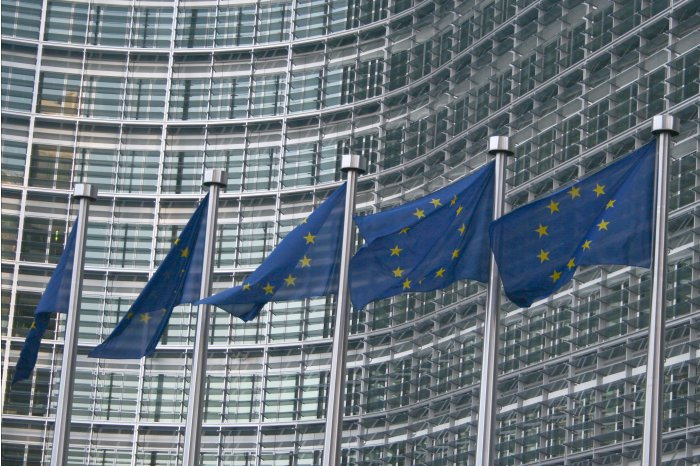13 July 1995. Moldova becomes member of Council of Europe
11:00 | 13.07.2021 Category:
On 13 July 1995, the official ceremony of approving the application of the Republic of Moldova to join the Council of Europe took place. At the same time, the Convention for the Protection of Human Rights and Fundamental Freedoms and the Framework Convention for the Protection of National Minorities were signed. In September 1995, in accordance with a Presidential Decree, the Permanent Representation of the Republic of Moldova to the Council of Europe was opened in Strasbourg.
The Republic of Moldova was the first post-Soviet country to get CE membership. But to achieve this goal it took three years of diplomatic and political activity, economic and legal reforms. All the central institutions of the state, including the parliament, the presidency, the government, the institutions of justice, were involved in the effort to join the pan-European body.
The first step was taken in February 1992. A delegation from the Chisinau Parliament, led by Vasile Nedelciuc, chairman of the Parliamentary Committee on Foreign Affairs, paid a visit to Strasbourg, where it met with C. Lalumiere, Secretary General of the Council of Europe and G. Finsberg, President of the Parliamentary Assembly of the Council of Europe (PACE), with other senior officials. During the PACE session, the representatives of our country submitted the request for granting Moldova the status of special guest. ARCE noted the approach of our country and decided to initiate a preliminary process of admission of the Republic of Moldova to the Council of Europe.
Several documentary visits by European delegations to Chisinau followed. Following these documents, on 12 September 1992 David Atkinson, Chairman of the Committee on Relations with Non-Member Countries, made the first report in favor of Moldova's accession to the EC, and on 5 February 1993, the Parliamentary Assembly of the Council of Europe granted Moldova special guest status.
During the visit to Chisinau of the Secretary General of CE, Catherine Lalumiere, it was agreed that in Moldova two programs should be extended:
1. The "Demosthene" program. This program was meant to provide our country with the experience of Europeans on the construction of the rule of law, the functioning of political pluralism, constitutional, legislative and administrative reforms. Moldova was to become fully aware of what a European state means and what values are promoted in this space.
2. The "Themis" program. This program provided for the creation of a new principal system for the preparation of legal frameworks. It included seminars, conferences, internships, scholarships and other forms of training for lawyers capable of administering justice under the rule of law and the separation of powers.
It was followed by a series of visits by delegations which carefully studied the state of affairs on human rights, the right to private property, freedom of the press, party activity, the state of the environment and other things that needed to be reformed along the way. This was not at all easy, as the parliamentary majority, elected in the spring of 1994, was not at all in favor of reforms and believed that, in a perfectly Soviet manner, it would be possible to limit itself to mimicking transformations.
However, frequent contacts with European structures required the modernization of the legislation of the Republic of Moldova, the preparation of a new Constitution, the adoption of legislation based on European norms. CE representatives were aware that Moldova was going through a torturous transition from an authoritarian to a democratic state, from a centralized economy based on planning to a market economy. In addition, changing the mentality was a complicated and time-consuming process. By default, all reports of European delegations were positive during 1994.
An extremely important step in the process of joining the Council of Europe was the visit to Chisinau in February 1995 of the President of the EC Parliamentary Assembly, Miguel Angel Martines. During the three days he was in Chisinau, Martines had numerous discussions with officials, visited the most important state institutions. The conclusion of the European dignitary was that Moldova meets the conditions for accession. Soon, Strasbourg confirmed that the Republic of Moldova is on the first place in the list of accession to the Council of Europe.
An extremely important day was June 27, 1995. During the summer session of the Parliamentary Assembly, three reports on the accession of the Republic of Moldova to the EC were listened to and debated: the Political Commission, the Legal Commission and the Committee on Non-Member Countries. There were contradictory discussions, both in the Committees and in plenary.
The decision of the Parliamentary Assembly of the Council of Europe was approved by the Committee of Ministers of the Council of Europe. This happened on July 13, 1995. The Republic of Moldova becomes a member of several agreements and conventions and undertakes to respect the rules and values of the Council of Europe. From this day, the Republic of Moldova is part of the most prestigious pan-European union. The country's European vector, defined in the Declaration of Independence of 27 August 1991, is becoming a priority, and the modernization process is preparing for further integration into the European Union.

